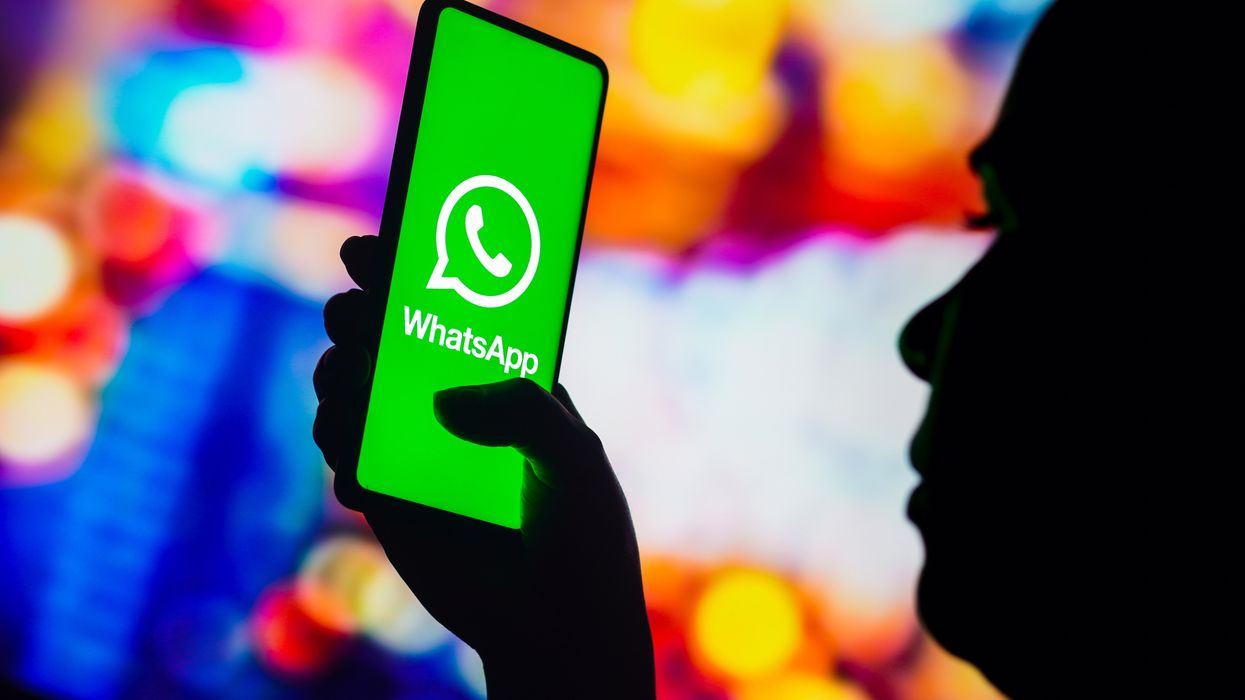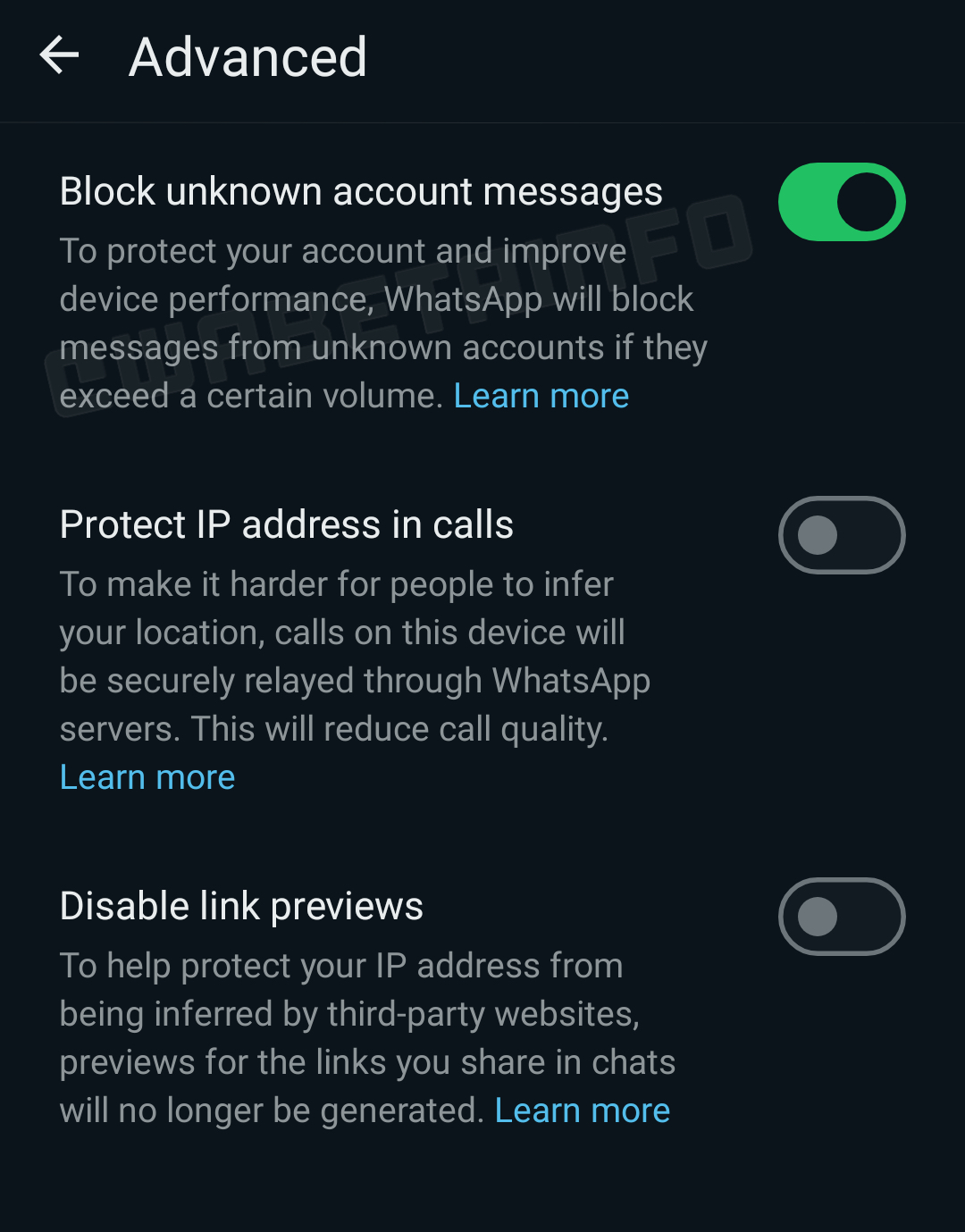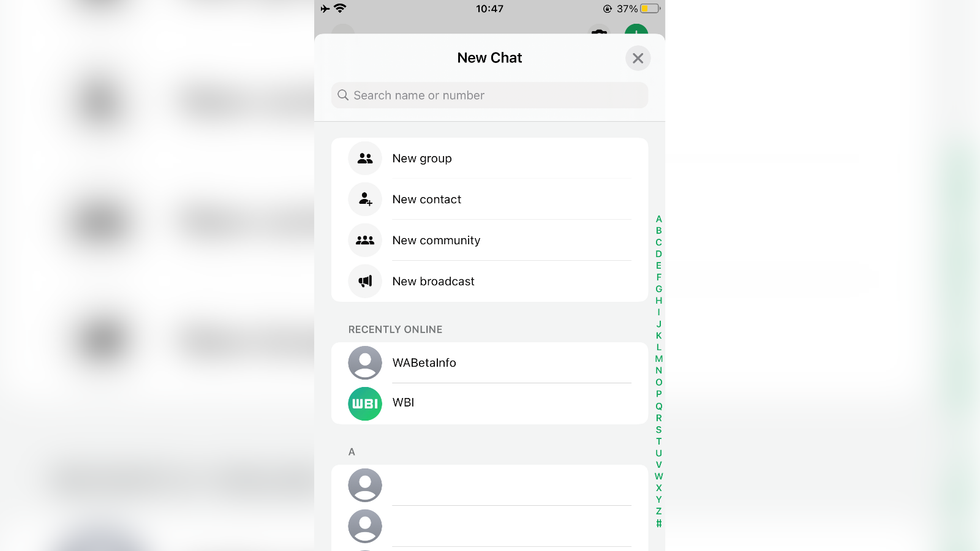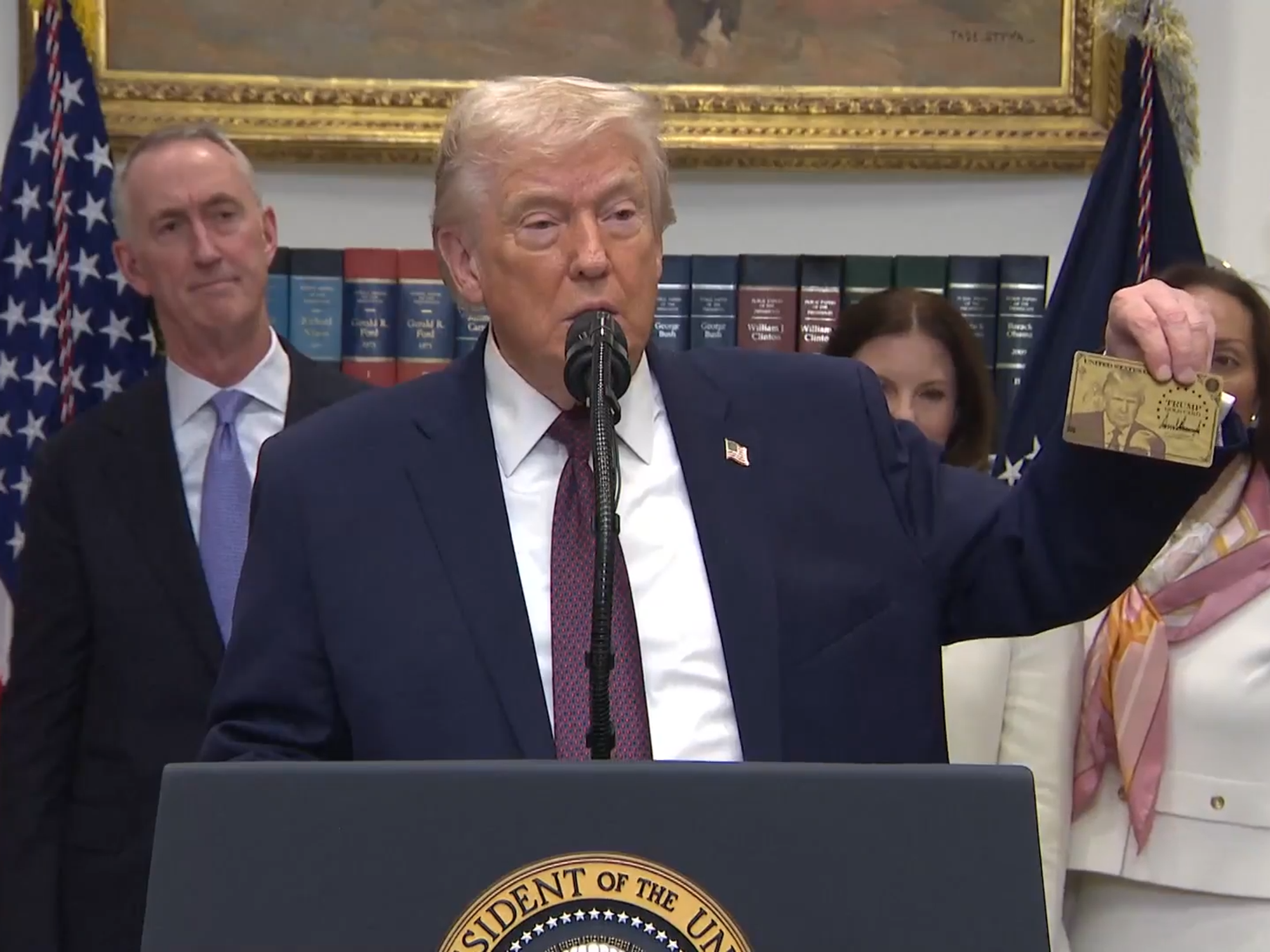Next WhatsApp crackdown aims to block the most annoying text messages

WhatsApp will reveal to your friends and family if you've recently launched the app on your iPhone, Android, Mac, or Windows
| GETTY IMAGES
Incoming safeguard could save your mobile data allowance and battery life
Don't Miss
Most Read
WhatsApp will automatically block infuriating text messages sent from unknown numbers in a bid to clamp down on spam and scams shared across the platform. WhatsApp is the most popular messaging service on the planet, with over two billion users worldwide, making it a target for criminals.
According to the latest beta version of WhatsApp, which is still in the early phase of testing for bugs, a new setting will let users "block messages from unknown accounts". This clever safeguard will kick in automatically when text messages exceed a certain volume.
Scams, phishing attempts, and other spam messages are often drafted once and forwarded to a long list of stolen mobile numbers. Hackers will then engage with whoever responds to the bait.

WhatsApp beta testers on Android can trial the new feature, which will automatically block messages that have been forwarded on the platform a certain number of times
|WABETAINFO | META
If the incoming feature works as planned, it should protect hundreds of millions of WhatsApp users from potential scams. Not only that, it could reduce the amount of mobile data used by the app on your iPhone or Android device since it won't be downloading messages that you don't have any interest in.
In turn, that could save your battery life too.
The planned feature, first spotted by blog WABetaInfo, which trawls through beta versions of the app to find clues about changes coming to the app, will be enabled by heading to Settings > Advanced > then Block Unknown Account Messages. There's no word on when the functionality will be enabled for users worldwide.
Meta, formerly known as Facebook, acquired WhatsApp for $21.8 billion a decade ago. After the retirement of co-founder Jan Koum six years ago, Meta is working on a series of new features and functionality for the service. Historically, WhatsApp usage has dwindled behind Messenger and iMessage in the United States, but recent statistics show the app is now installed on half of all smartphones owned by 18 to 35 year-olds.
The shift in this critical demographic could be the reason behind the slew of new features and functionality currently in-testing by WhatsApp.
The scam-prevention safeguards above come just a few weeks after WhatsApp started to beta test a new feature to inform friends and family when you've recently opened the chat app.
Contacts will be categorised under a new "Recently Online" banner if they've had the messaging platform open on their iPhone, Android, Windows, or Mac in the last few minutes. Highlighting people who have recently been active means you could be more likely to get a timely response, which WhatsApp clearly hopes will encourage more conversations.
The feature isn't yet available globally, but it is being tested in early beta versions of the messaging service on iOS and Android. The tweak was spotted by the eagle-eyed team at WABetaInfo, which reports on incoming features found in beta versions of the chat app.
 WhatsApp is trialling a new feature that'll tell friends and family whether you were recently online — removing the ability to open the app to reply to some messages ...but not all |
WhatsApp is trialling a new feature that'll tell friends and family whether you were recently online — removing the ability to open the app to reply to some messages ...but not all | WABETAINFO | META
WhatsApp has long shown users when a contact was last connected to the internet — or if they're currently active on the platform, this appears within individual conversations with the status "online" or "last seen" underneath the name of the person.
In its support documentation, WhatsApp describes the feature: "Last seen and online tells you if a contact is online and the last time they used WhatsApp. If a contact is online, they have WhatsApp open on their device and are connected to the Internet.
"However, this doesn’t mean the contact has read your message."
LATEST DEVELOPMENTS
- You DO need a TV licence to watch Netflix, BBC rules
- Millions of BT, Sky and TalkTalk users unlock broadband boost
- Best VPN deals
- Cheap VPNs recommended by Reddit
- Worst UK city for broadband speed unmasked by new study
It's possible to disable this feature by heading to Settings > Privacy, then tap Last Seen And Online, then choose from the options of who can see this information — Everyone, My Contacts, My Contacts Except…, or Nobody.
According to the team at WABetaInfo, if you've disabled Last Seen And Online, you automatically will not appear in the "Recently Online" section in WhatsApp ...should the feature ever launch.
As with all of these beta tests, there's no guarantee that WhatsApp will launch this feature globally.
It comes as WhatsApp rolled out the ability to protect conversations with a passkey — a secure alternative to a password, which is also now available in X, formerly Twitter.










